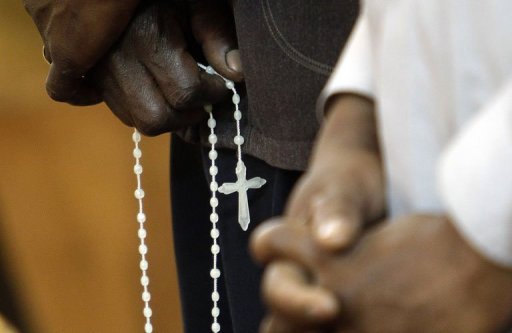PALM BEACH GARDENS, Florida: The Mideast peace “proximity talks” are a step backward from years of direct negotiations. The ethnic Diasporas in the United States have both helped and hindered the resolution of the conflict. Stuck in a cycle of self-serving advocacy, each side assumes the adversary to be misguided. Biased and unconditional support of idealized roots in the grim realities of the Middle East has helped to perpetuate a fratricidal scenario. Could this cycle be reversed? Is it unrealistic to envision Arabs, Jews and Muslims in America joining forces in support of Middle East peace?
Well, miracles do occur. Years ago, President Sadat of Egypt made a stunning and unexpected visit to Israel, once he had seen the futility of the status quo. The “miracle” was a peace treaty between Israel and Egypt. Although critics of Sadat considered this to be capitulation, supporters felt that this Arab statesman generated a lasting momentum of reconciliation.
Today, one hopes that the threat of a new regional war would set the stage for a historic surprise, possibly a Sadat-like game-changing event. The status quo cannot hold. Ending the conflict would protect Israel from the inevitable moral and material hazard of the occupation, improve the regional climate for US relations with the Arab world and satisfy the national aspirations of Palestinians.
If the Middle East linked Diasporas in America would think outside the box, they could help save the peace process. America’s genius is in its integrated diversity. There is already an appreciable record of inter-communal reconciliation. There is, for example, a national effort to twin 50 mosques with 50 synagogues across the United States and Canada. Last November, mosques and synagogues joined together for a weekend of programs designed to promote unity and mutual understanding. There are a variety of cooperative activities between Jewish and Muslim or Arab groups involving artists, athletes, scholars, youth, clergy, scientists, politicians and women in leadership.
History testifies to the ability of Diaspora-linked NGOs to support reconciliation. During the 1980s, American NGOs led a global Mideast peace campaign. This international nongovernmental peace initiative brought Palestinian and Israeli NGOs to work together. The formation of the American Task Force on Palestine was inspired by the bridge-building experience of the American peace movement.
Most recently, the Washington-based J Street (pro-Israel, pro-peace lobby group) has been initiating new forms of Palestinian-Israeli dialogue.
Yet there is still a dire need for a quantum leap in social action in the Diaspora communities inside America in tackling the remaining hard problems.
For example, the impasse over Palestinian prisoner exchanges—an issue which has lost momentum — also has far reaching consequences for reviving the peace process.
Marwan Barghouti, seen as Palestine’s future Mandela, is serving several life sentences in an Israeli prison having been convicted by an Israeli court for killing Israelis during the second intifada. Yet Barghouti was once a strong peace activist and still believes in the wisdom of a two-state solution. This jailed leader has the charisma and credentials to reunify Palestinians who are split between Hamas and Fateh.
On the other hand, Hamas currently holds prisoner Israeli soldier Gilad Shalit, who has become an iconic figure for Israelis. Negotiations for the exchange of prisoners between Israel and Hamas have reached a deadlock; Israel has agreed to exchange hundreds of Palestinian prisoners for the release of Gilad, but not Barghouti.
Working collectively in the Diaspora communities of America for the freeing of Barghouti and Shalit could have an immense impact on the resolution of this conflict. If Arab, Muslim and Jewish Americans were to campaign together, they would create a new political atmosphere. If such reconciliatory teams would lobby Hamas and Israeli politicians, a strategic door in the Middle East could open. An inter-communal American visit to an Israeli prison, to synagogues, to mosques, to Gaza and to Jerusalem would help to soften positions on all sides. A joint media campaign would also work wonders.
American communities focused on Israel-Palestine are well positioned to experiment with new ideas for peace making in the Levant. With the joint support of US Jews, Arabs and Muslims, the US administration would gain clout to orchestrate peace; without their support the US administration will not get far in the promotion of peace.
The magic in the miracle is not in the infallibility of the miracle agent but in the nobility of his or her act. The dismal situation in the Middle East requires radically innovative approaches to the resolution of the conflict—here, the Diasporas could prove a critical missing piece of the puzzle.
Dr. Ghassan Michel Rubeiz is a Lebanese-American Middle East analyst with special interest in political sociology, social justice and democracy. He is a former professor of social work and psychology. Source: Common Ground News Service (CGNews), 13 May 2010, www.commongroundnews.org.

